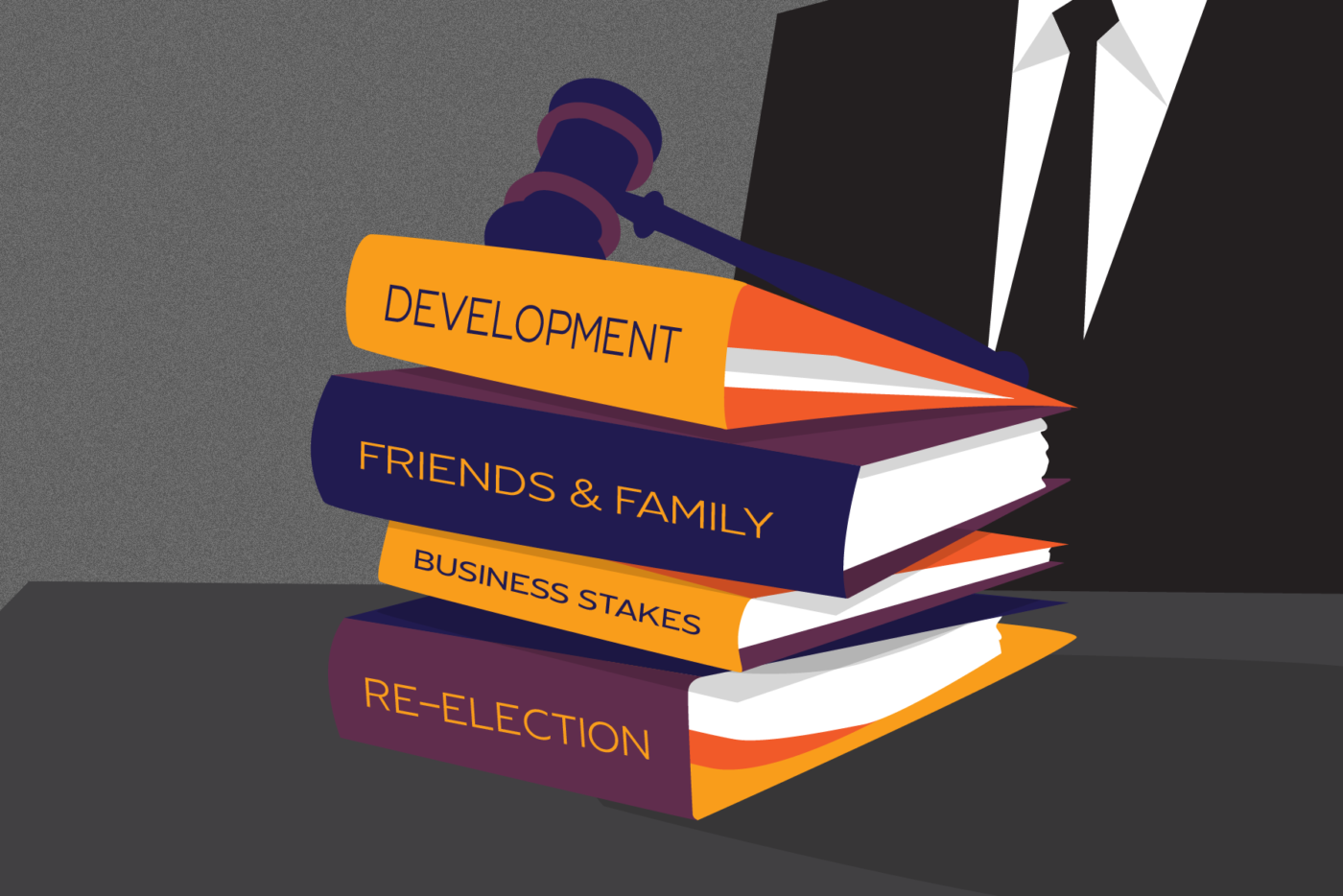President Rodrigo Duterte lauded Manila City Mayor Isko Moreno last September for clearing a few streets in Manila. Similar remarks from citizens have also met Pasig City Mayor Vico Sotto for his progressive overhaul projects in Pasig such as Universal Health Care and Ugnayan sa Pasig (Connecting with Pasig). However, such deeds are only imperative of their duties as public servants.
This adulation for good governance hints at the nation’s desensitization to the country’s state of politics. Various malpractices have shaped not only Philippine political history, but also people’s expectations of their public servants—to the extent that the bare-minimum has become the ideal.
Ingrained praxis
The key hallmark of Filipino politics is its patronage culture. Ateneo School of Government (ASOG) Consultant Benjamin Barretto explained that connections, dependence, and binding ties play huge roles for both politicians and citizens.
Barretto discussed how Philippine politics is “very personalistic,” pertaining to how political and personal relations are closely associated. “You vote for the [candidate] you know, you vote for [their] family…sometimes you vote for [connections],” he said. Politicians’ personal gestures, such as going to baptisms or attending funerals, all play a huge role in affecting patronage. More explicit malpractices that help secure political influence include vote-buying and placing campaign posters in public spaces like light posts, sidewalks, and polling stations, among other prohibited places.
Patronage politics also seeps into basic government provisions, as explained by Political Science Department Lecturer Hansley Juliano who has worked with local government units (LGUs). Services and benefits such as pensions and scholarships, meant to be freely accessible, are often given on request and at the discretion of politicians, breeding a sense of utang ng loob or indebtedness.
“Isama mo pa ‘yung mga discretionary projects ng mga konsehal mo (Factor in your councilors’ discretionary projects),” Juliano stated, citing bonuses like free parlors, funerals, and job fairs, among others. “All of [these operate] on the [expectation] na if you are a dignitary in the city, you have to be a patron of something,” he added.
Overfunded projects—from infrastructure to public services—are also part of a politician’s playing cards, according to Juliano. Leftover funds from projects, valuing in millions of pesos, are spent as honorarium for project members or budget for events such as Christmas parties for a patron’s staff. All these add to sustaining a politician’s ties and reputation.
Unchecked, unbalanced
Many of these malpractices help politicians win over voters and maintain power, enabling them to further pursue their agendas while avoiding accountability for their misdeeds—a key reason why politics remains a “family business.”
Barreto stresses the dilemma in creating a political dynasty law. According to ASOG paper “From Fat to Obese: Political Dynasties after the 2019 Midterm Elections” about two-thirds of local lawmakers belong to these dynasties.
Political clans allow patronage politics to persist, as families sustain their power partly by employing the same personalistic practices.
Thus, the burden is on LGUs to institutionalize social services to offset citizens’ dependence on politicians. As many services still rely on politicians’ whims, voter behavior does not change, Juliano points out.
Other accountability measures for politicians fall short, too. Juliano expounded on this by saying that the Commission on Audit, along with other organizations that serve as watchdogs, lack manpower,
“Madalas hindi rin mabilis ang labas ng reports. So may mga… programs na makakalusot at…mababadyetan kasi hindi nai-report agad ang anomalies (Often, reports are not released quickly. So there are programs left unchecked and given budgets as anomalies are not reported at once),” he adds.
Gaps in accountability allow politicians to illicitly amass more capital, which is crucial for re-election. Juliano noted that when incumbents are strong, there is usually a “demotivated opposition.”
“People can’t choose alternatives if they don’t know what they look like,” Juliano emphasized. Thus, the cycle of the elite preserving their power continues.
Political malpractices impair good governance in the country to this day, and challenging these requires deep systemic reforms. So long as public servants use their posts to further personal stakes and stay in power, good or even bare-minimum governance will always seem like heroes work.




